Borrowing Requests
What is the Rapido scope of search in Primo?
The Rapido scope includes the Central Discovery Index and the Rapido Global title index of all Rapido customers.
Can the Rapido scope be expanded to include other scopes?
Yes. Other scopes can be included in the Rapido scope.
Can customers submit requests for multiple items in a single borrowing request (e.g. multi-volume set)?
Yes. Multiple items can be requested in one request.
Can patrons request an item that does not appear in the Central Discovery Index?
Yes. There is an option to create a request from a blank form for such cases.
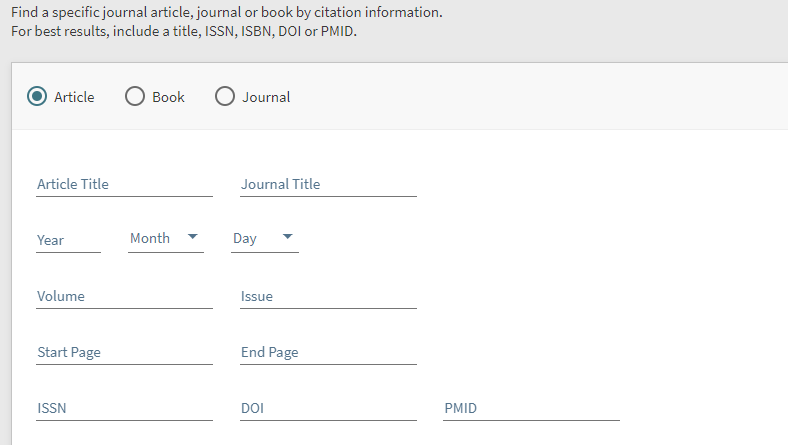
Can patrons manually fill out a borrowing request form?
Yes. Patrons can fill out a form for an article, book, or journal.
At what point in the borrowing process might staff need to mediate the patron’s request?
Rapido enables the automation of the process as much as possible. However, Rapido mediation rules exist to enable staff to mediate in certain conditions specified by the library. The library can activate default mediation rules as well as create others.

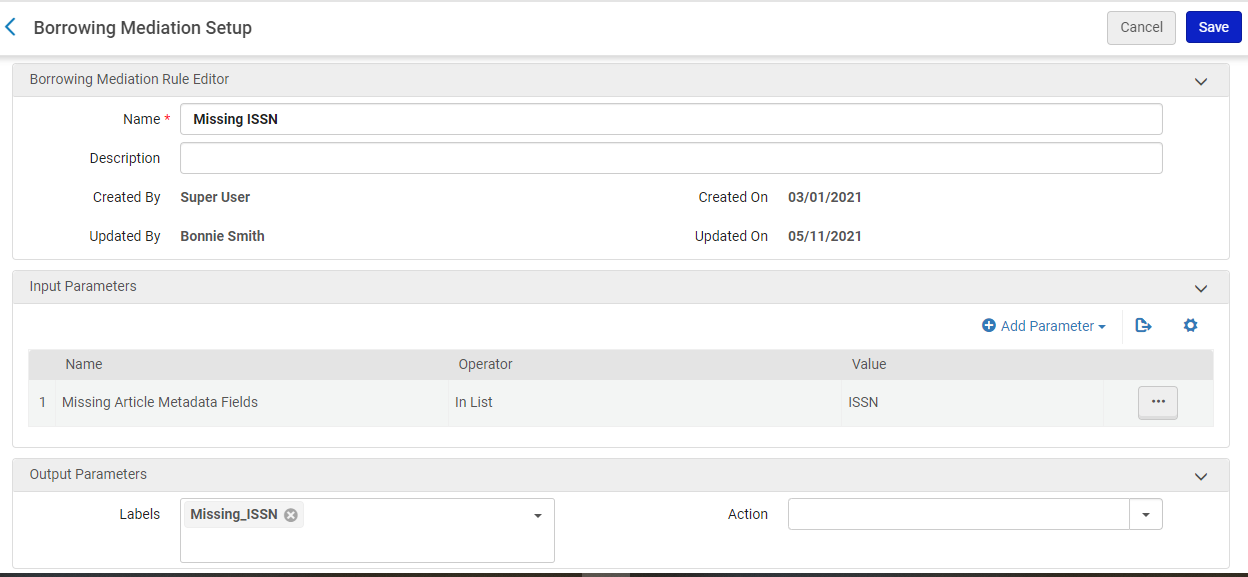
How can we set pod priorities?
Pod priorities can be defined as part of the Member information Borrowing Policies (Configuration > Resource Sharing > Members)
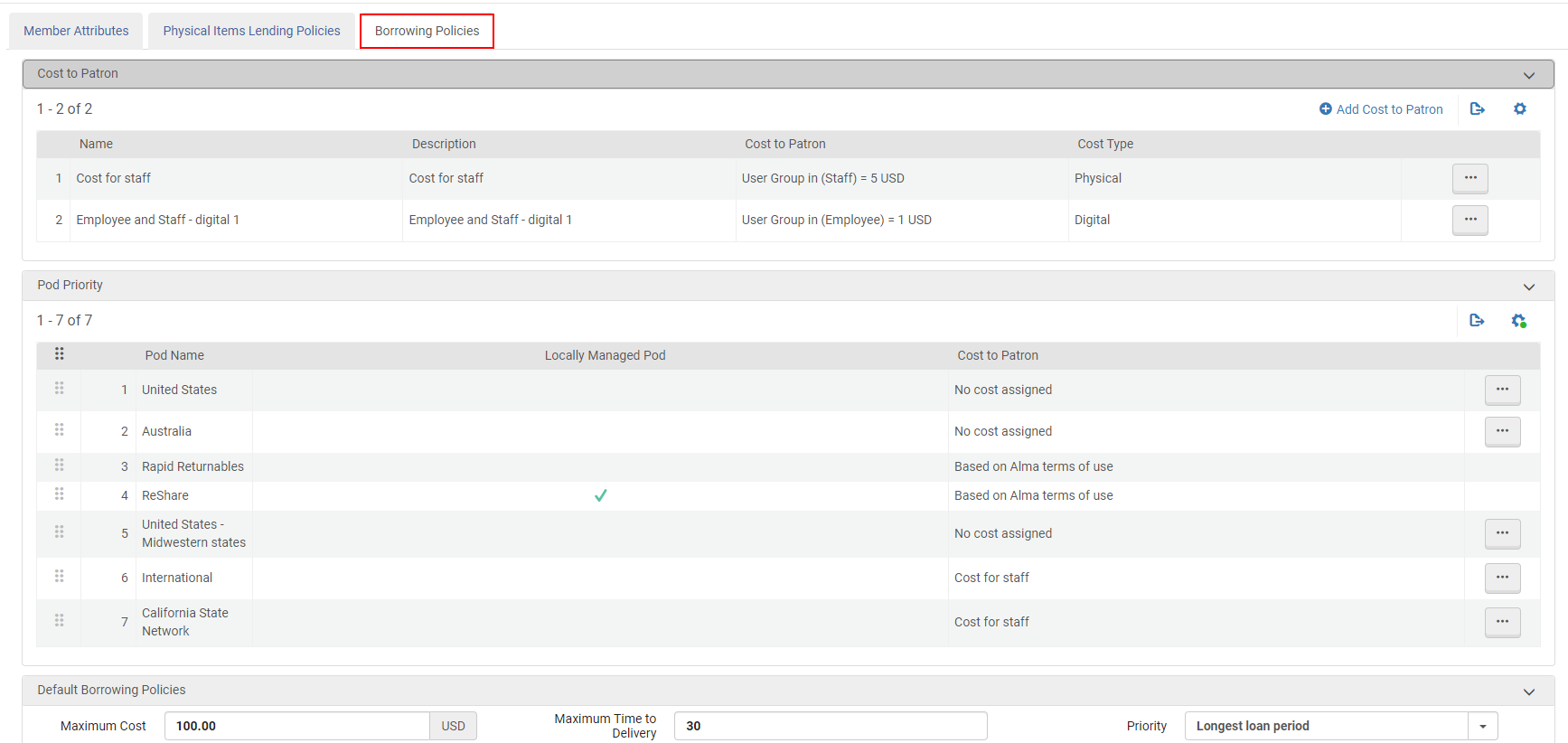
Can borrowing exceptions be defined?
Exceptions can be defined in the Borrowing Policies record - the Borrowing Policies tab:
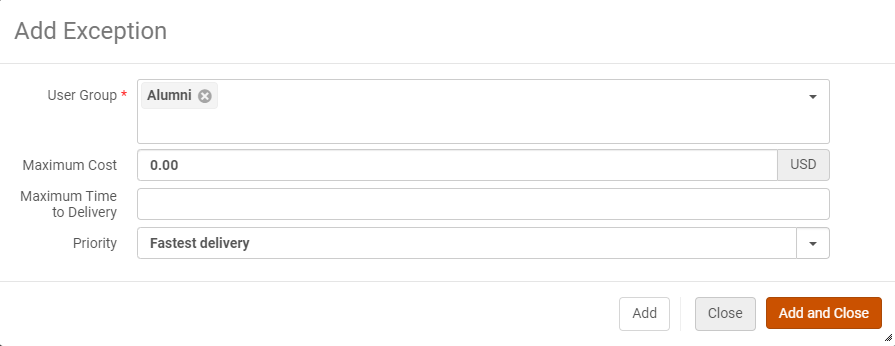
Can we set rules to ensure that certain types of borrowing requests are mediated?
Yes. Mediation rules defined by the library will ensure that requests that meet the mediation parameters will be mediated. All other requests will be processed automatically.
Can we charge some patron groups and not others to fulfill requests?
Yes. This can be set as part of the User Group configuration parameters.
How can I filter out Borrowing Request statuses that we won't use?
You can filter out statuses from the Active Borrowing Requests Rapido Sets, in the Borrowing Requests Inactive Filters code table (Configuration Menu > Fulfillment > Resource Sharing > Borrowing Requests Inactive Filters). Enabling a row means that the status is removed from the Active borrowing request display in the task list:
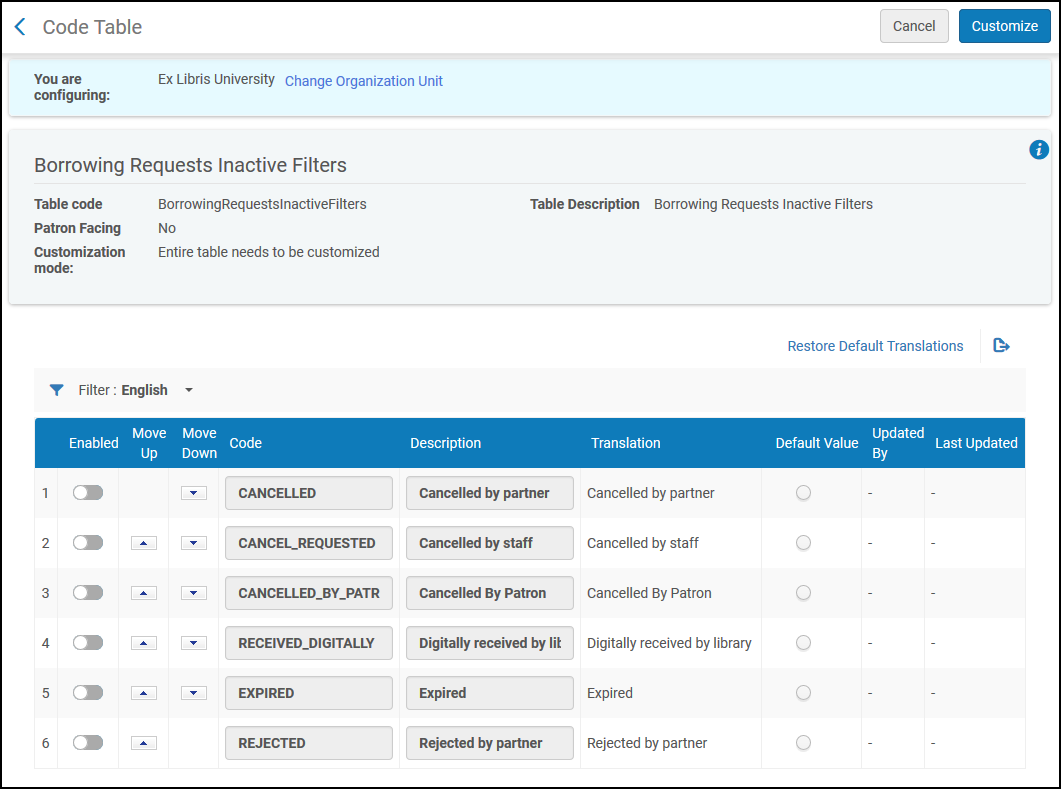
Is the document delivery workflow the same for article lending as it is for local doc delivery?
Institutions can set up Rapido to also cover document delivery for materials owned by the library and via the Rapido tiles. This creates a consistent request experience for the patron as the owner is not relevant to their request or needs.
Self-owned items requested by library patrons using Rapido tiles are handled in whatever way that the library has configured to handle requests for any other self-owned items. The library can choose to configure self-owned items to be processed the same as other Rapido requests. This configuration choice means that self-owned items requested by the library’s own patrons will show in the lending side and can be fulfilled by staff processing lending requests. Watch this video for more information.
Is there an email mechanism to communicate with patrons about a request they placed?
Yes, you can always communicate with your patrons from the request itself.

Are requests sent only to other libraries that use Alma or Rapido?
No, Rapido is open to any system supporting standards such as ISO and NCIP.
How are requests sent to non-Alma/non-Rapido suppliers?
Rapido is open to any system that supports ISO/NCIP protocols.
How are possible suppliers determined?
In Rapido you determine which networks you would like to prioritize. The system will automatically work to this order.
How are requests sent to libraries that do not use an ILL management system, e.g., ALA/IFLA requests?
Document delivery in Rapido has the RapidILL network as its backbone consisting of more than 500 institutions and has built in open access checking. The fulfillment rate is above 95%. For the remaining portion of requests, there is the option to utilize any NCIP or ISO partners or purchase requests from article suppliers.
How are requests sent to libraries that do not use an ILL management system, e.g., ALA/IFLA requests? Is there the ability to use ALA/IFLA forms?
There is an upcoming development that will create an ALA form to be generated out of the request to be sent to a partner such as this. Rapido's focus is to enable as much interaction as possible with your resource sharing ecosystem.
How is billing managed by libraries that we borrow from?
Currently, most of the libraries have agreed to reciprocal resource sharing with no charges. If a library desires to charge, this is supported in the system and the information is kept both on the request and in analytics.
What if a lending library sends the wrong item?
You can communicate with the library from the borrowing request using the General Message action.
What copyright compliance processes are in place for borrowing requests?
Rapido offers a comprehensive set of configurations and workflows designed to support each institution’s individual approach to copyright compliance. These include out of the box configurations, such as a “Rule of Five” borrowing copyright rule, which can be edited or replaced as needed.
The Rapido Copyright rules enable you to set a number of copyright options.

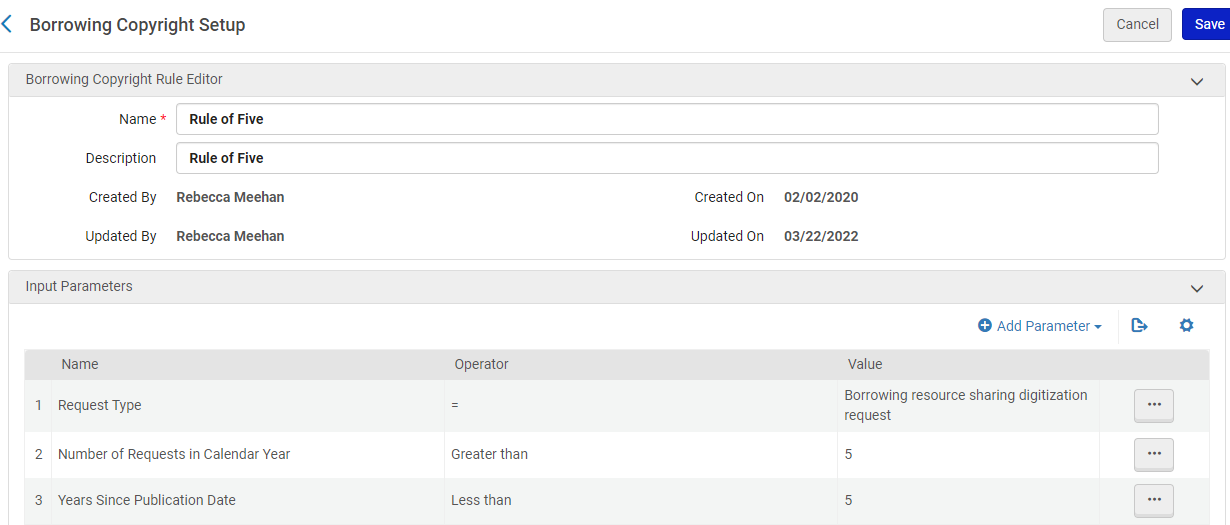
How can we prevent more than one staff member from managing the same mediated request?
This can be handled in a number of ways. Staff can create Rapido sets that are specific to each user. For example, if a staff user handles all document delivery (digitization) requests, then a set should be created for these types of requests for that staff user. Only this user will access and manage these types of requests.
Another option, which can be used in parallel, is to use the 'assign to' facet which enables users to assign themselves - or others to requests. Requests will be clearly marked with the assigned user. Note that it is also possible to release assignments. Following is a screen capture where you clearly see the assignment:
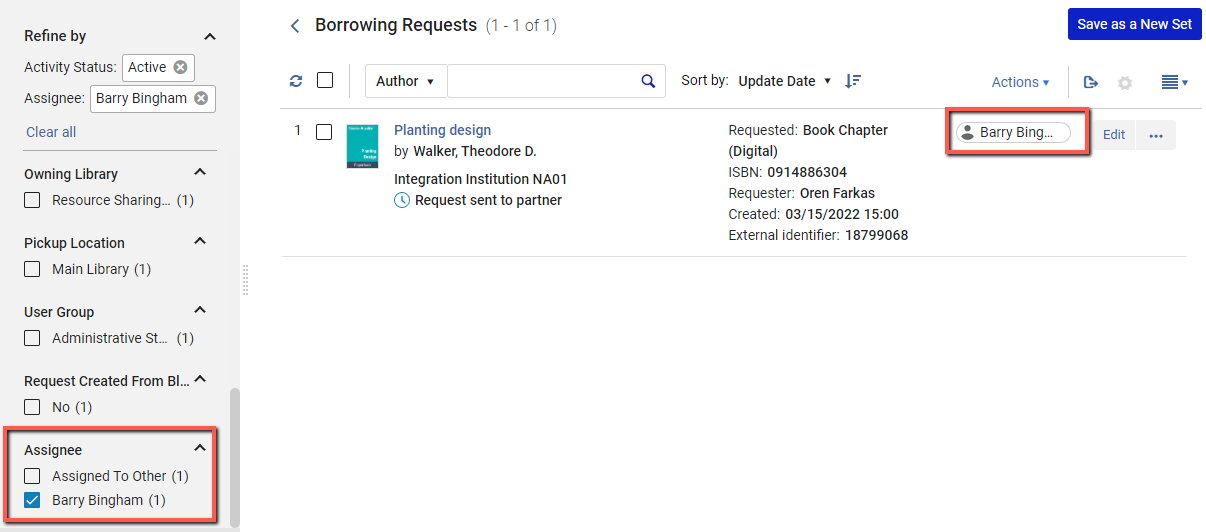
What is the difference between the Reject, Cancel partner, Recalculate, and Reactivate actions?
See Reject, Cancel partner, Recalculate Partner, and Reactivate.

